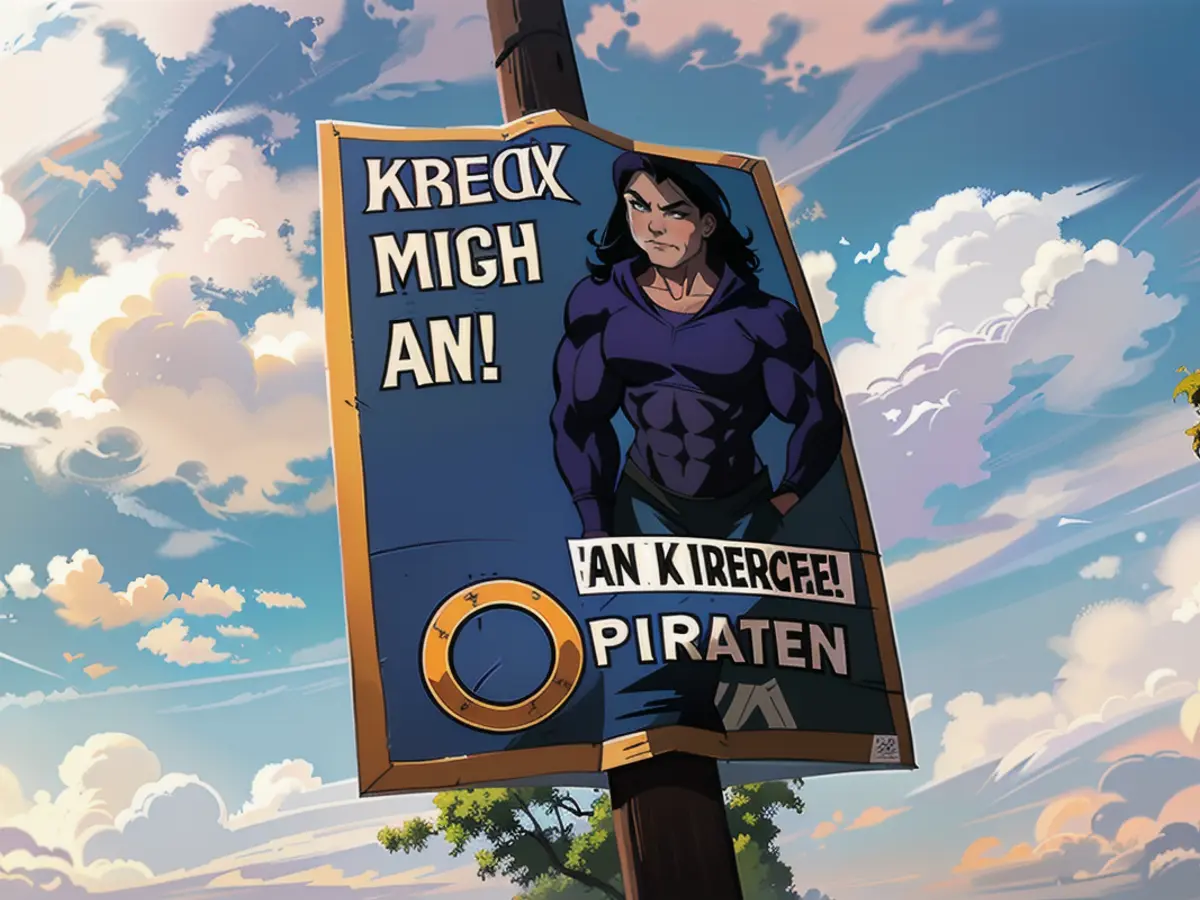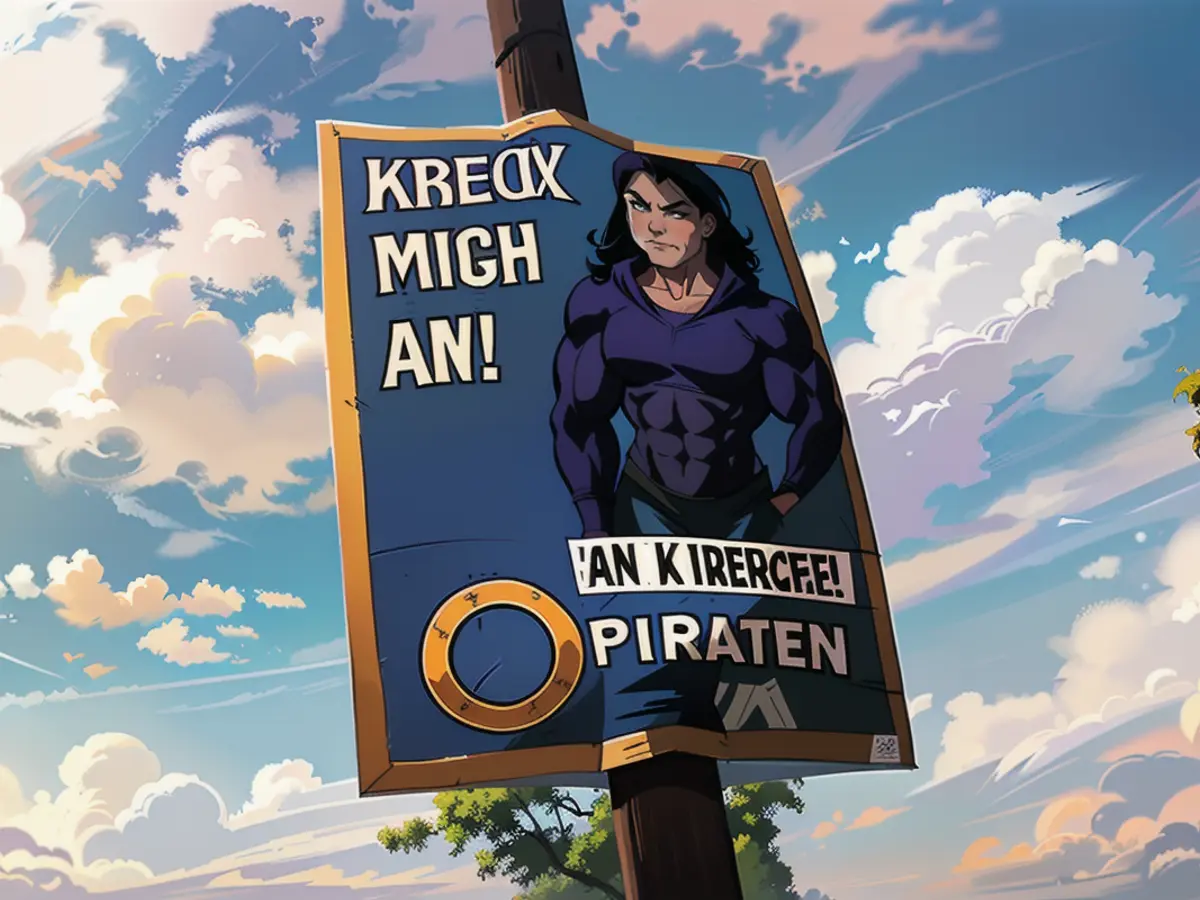The European elections transform into a show of fragmented groups.
During the European elections, there isn't a specific percentage threshold set for the votes. This allows Germans to vote massively for smaller parties. Some of these parties propose extremist ideas, while others bring up incredible concepts like space travel or beer price caps. It's a thriving industry.
A surprise result is anticipated in the European elections, as suggested by new polls. Around 20 to 25% of Germans might vote for small and new parties. This is quite unprecedented in the history of the Federal Republic. There are 35 parties and political organizations allowed to participate in the election on June 9th. Surprisingly, many of these smaller parties have a higher probability of winning a spot in the parliament. There hasn't been a five- or three-percent ceiling for the European elections in Germany since 2014.
The absence of a threshold allowed 0.7% of the votes to secure a position for Germany. So, Volt received 249,098 and the Pirates received 243,302 votes, each earning one seat in the parliament. Five years ago, "The Party" even managed to enter with just 184,709 votes.
This time, experts suggest that 15 to 18 parties could find their way into the parliament. The internal political instability is motivating many voters to protest against traditionally dominant parties. Additionally, the decrease in the voting age to 16 years is offering extra motivation to opt for unconventional choices.
The most astonishing 14 different parties had their representatives in the European Parliament from Germany last time. The most were the CDU (23), followed by Bündnis 90/Die Grünen (21) and the SPD (16). The AfD secured 11 seats, while the CSU (which only runs in Bavaria) received 6 seats. The Left and the FDP each gained 5 seats. Alongside these well-known parties, seven lesser groups also made their way into the European Parliament: Two representatives each for the Free Voters and "The Party", plus one representative for Pirates, Animal Welfare Party, Family Party, ODP, and Volt. The Pirate, ODP, and Volt representatives, in addition to one of the two "The Party" representatives, joined the Green Faction in the European Parliament. The Free Voters joined the Liberal Faction. The Tierschutz representative joined the Left-wing Faction, until it was discovered he was once a member of the NPD in the 1990s. The Family Party politician confused the conservative EVP Faction.
The top newcomer among these options is the Bundnis Sahra Wagenknecht (BSW), which was established in January. According to the surveys, the BSW could score between 5 and 7% and thus surpass both the FDP and the Left Party. This would equate to at least five seats. The Free Voters are expected to receive 3% of the votes. The groups Volt, Animal Welfare Party, ODP, and Pirates are also viewed as promising.
However, this time could witness the emergence of some rather unconventional parties - especially those with outlandish election promises. The vegan-inclined "V-Party" guarantees free train and bus travel for everyone, universal basic income for everyone, and unconditional basic income for everyone. The Marxist-Leninist Party of Germany (MLPD) promises a 30-hour work week with full wage reimbursement for the European election. The MLPD, along with the Socialist Equality Party and the German Communist Party, count as three left-wing extremist parties. The right-wing extremist successor party of the NPD is known as "The Homeland".
The libertarian "Party of Reason" is striving to abolish the current monetary system: they'd replace the euro with a free market money system, usable from many vendors. The party Human World demands non-partisan courses for meditation and yoga in parliament to balance the thoughts and actions of responsible politicians with the well-being of all.
The Pirate Party, slightly serious about data protection in the European Parliament and represented by Ulm computer scientist Anja Hirschel, is also dabbling in visionary ideas. In their election program, they advocate for "interplanetary travel, planetary defense, space mining, production in space, colonization of other planets" and more. The Pirates claim such projects would "promote the development of radically new technologies and materials."
The most extraordinary election promise originates from "The Party for Medical Research for Aging Research." They advocate for extensive medical research to significantly increase human lifespan. In their first step, the new party pledges "an additional 20 years of life for a 60-year-old." Europe needs to be reinforced as an economic powerhouse and pave the way for a prospering longevity industry. On their posters and website, the party questions their voters, "Where do you want to live in 800 years?" since, if you follow them and explore, then the sky's the limit: "If we achieve this, humans could live indefinitely."
Even though they're known for their silly ideas, "The Party" can't seem to completely disassociate themselves from their outrageous proposals. This includes the likes of a "one-year-diploma for everyone," beer price freeze, and a "döner price freeze" (5 euros for a beer and döner with everything). Lead by former "Titanic" editor-in-chief Martin Sonneborn and writer Sibylle Berg, they also suggested a two-state solution for Germany, splitting it into East and West. Sonneborn has been a member of parliament since 2013. Notably, a colleague named Nico Semsrott left the party earlier in 2021.
For smaller parties, financial gain is sometimes a strong incentive to participate. Since the German government reimburses registered parties for campaign costs based on their vote share, they receive 1.13 euros per vote (reduced to 0.93 euros for over 4 million votes). A bonus of 0.45 euros is provided for each euro they've received as a donation as well. Some of these smaller parties could actually make more money than they spend if they're careful with their election campaigns.
Whether it's political convictions, wild dreams, or financial gains driving small party politicians, this fractured landscape is unlikely to endure in the future. In the upcoming European elections of 2029, a threshold requirement of 2% for entry into the European Parliament has been implemented by the EU Council's decision from 2018. This is to prevent the complete disintegration of the Parliament. Potential thresholds range between 2% and 5%. Germany opted for the lower threshold in an attempt to still allow many parties into Parliament. However, the 2% threshold may significantly reduce the number of German parliamentary parties if fascinating topics like space shuttles, eternal life, or yoga classes for politicians don't draw in millions of voters.

Read also:
In the upcoming European elections, the Pirate Party, known for advocating for space travel and data protection, aims to secure another seat in the EU Parliament. Remarkably, smaller parties like the Pirates, with visionary ideas, have historically managed to enter the German parliament despite not meeting a specific threshold since 2014.
During the European elections, the Pirate Party, alongside other smaller parties, benefits from the absence of a vote threshold, enabling them to garner support from a significant portion of German voters.








